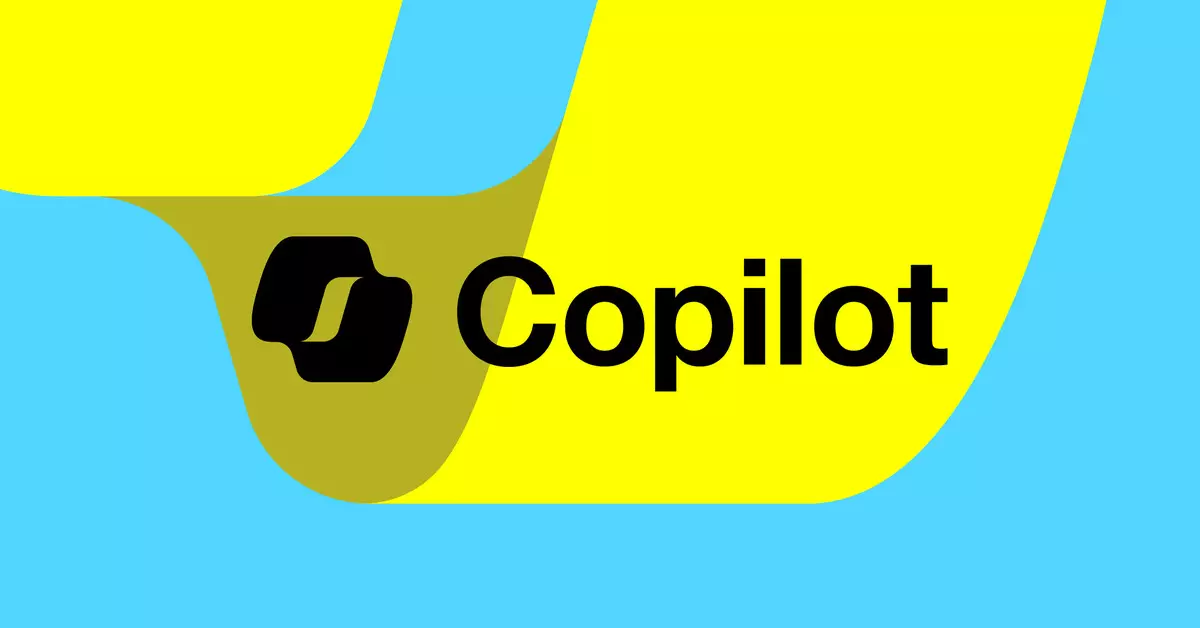In an age where technology rapidly blurs the lines between innovation and convenience, LG and Samsung have taken significant strides in integrating artificial intelligence into their upcoming 2025 smart TV models. Announced at CES this weekend, these televisions promise to bring the power of Microsoft’s Copilot AI assistant directly into the living room. However, this integration raises questions about practicality and user experience, pushing us to examine if these features are genuinely revolutionary or merely a marketing ploy.
LG is stepping into the AI arena with grand ambitions. By introducing a dedicated AI section within their smart TVs and rebranding their remote as the “AI Remote,” they are clearly aiming to cater to a tech-savvy consumer base eager to engage with cutting-edge technology. However, the exact mechanics of how Copilot will function on LG TVs remain shrouded in mystery. The company claims that Copilot will help users “find and organize complex information using contextual cues.” Yet, without demonstrable features or practical applications, this claim risks being perceived as empty jargon rather than a substantial improvement to the television experience.
Aside from the integration with Copilot, LG has also introduced its own AI Chatbot, allegedly designed to enhance interactivity with users. Despite this promising feature, the lack of a tangible demonstration casts doubt on the overall effectiveness of its AI initiatives. Ultimately, time will reveal whether these features are functional innovations or merely cosmetic enhancements.
Meanwhile, Samsung has unveiled its own AI ecosystem branded as Vision AI, which boasts features such as AI upscaling and Adaptive Sound Pro. This clever marketing tactic also includes a unique AI button on their remote control, allowing users to access various AI capabilities, including food recognition and home security integration.
However, much like LG, Samsung has been vague regarding the direct functionality and real-world applications of Microsoft’s Copilot within its Vision AI framework. The partnership promises personalized content recommendations and an enhanced viewing experience, but without additional details or visual demonstrations, skepticism lingers. Potential consumers are left wondering if these technologies will truly deliver meaningful improvements or if they will simply serve as flashy selling points.
The crux of the matter lies not in the promise of technology but rather in its execution. Consumers are inundated with buzzwords and technical jargon that sound enticing yet often result in a lackluster user experience. The ambiguity surrounding the integration of Copilot in both LG and Samsung’s products raises the need for clear demonstrations and explanations from both companies. Until they provide comprehensive insights into how these AI features will work in everyday scenarios, it’s reasonable to view these developments with cautious optimism.
As LG and Samsung embark on this new chapter of AI-infused smart TVs, industry watchers and consumers alike remain vigilant. The success of these features will depend on their practical implementation rather than speculative promises. Until LG and Samsung put their AI capabilities to the test and earn the trust of their audience, the integration of Microsoft’s Copilot may risk being labeled as just another gimmick in the rapidly evolving tech landscape. In the meantime, we watch and wait, hoping for a breakthrough that could redefine our interaction with entertainment technology.

